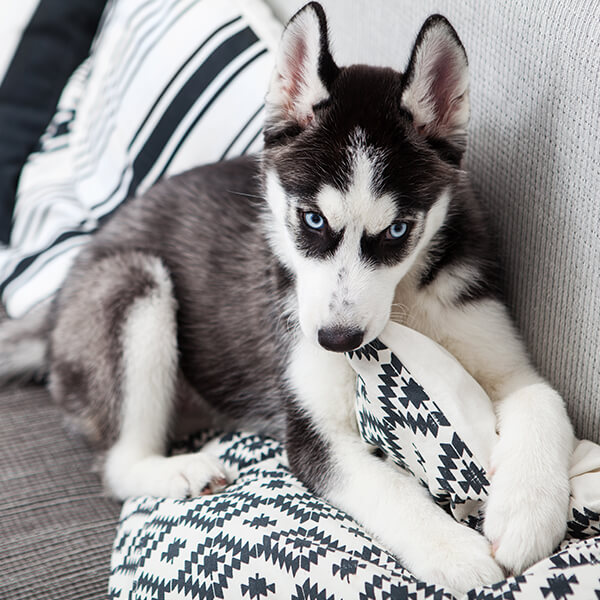Siberian Husky Food and Health
You love your Siberian Husky, but there are some things that you need to understand about them in order to give them the right food. Your dog is bred to pull snow sleds in harsh environments, but even with that genetic history, today’s huskies are as energetic as ever, and they are also loving and loyal and require lots of exercise and a nutritious diet that is full of everything that they are used to eating out in the wild. Huskies weigh between 35 lbs and 60 lbs depending upon gender, and they require diets around 1350 calories per day. Of course, that will depend upon their activity level.
There are some nuances when it comes to Siberian Huskies that you need to be concerned with as far as diet nutrition. Siberian Huskies may not always eat when you dish out the food. Siberian Huskies tend to eat less than other breeds of their size, and it’s not unusual for them to only eat when they are hungry. That means that they may skip meals every once in a while. This is why many experts recommend that if you have a Siberian Husky that you feed them a high-calorie food. This is especially true since obesity is not usually a problem with this breed.
Something else that you want to keep in mind is that just like just about every dog out there you need to make sure the meat is the number one ingredient in whatever food that you feed your Siberian Husky. You want to make sure that they are getting between 15% and 20% of their diet from protein. This should also be mixed protein so they can get all the nutrients that they need. They should also be getting all of the vitamins and minerals that your Siberian Husky needs to get through the day.
Although Siberian Huskies are hardy animals and have an average lifespan of 12 to 14 years, there are some health conditions that you should be aware of. For one thing, Siberian Huskies may have seizures, as well as eye problems. This includes cataracts, corneal dystrophy, canine glaucoma, and Progressive retinal atrophy. Luckily, these are all genetic conditions and are somewhat rare. Siberian Huskies that are used for sled racing, which is what they were bred for, may also suffer from gastric disease, gastric erosions, ulcers, and bronchitis.
Many pet owners have started going with pet insurance instead of having to save money for their pet in case they get into an accident or contract a disease. This makes a lot of sense because there are plenty of things that can happen to your pet and protecting yourself with insurance is just a smart idea. There are many different options when it comes to pet insurance. You can get insurance that covers you in the case of an accident, insurance that covers you from any condition or disease, or “condition-only” insurance that only pays if your dog contracts a particular condition. Pet insurance is extremely affordable and it keeps you safe from financial problems if your pet gets sick and ensures that they are going to get the treatment that they need.

